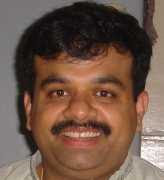Supercalifragilisticexpialidocious! Even though the sound of it is something quite atrocious If you say it loud enough You'll always sound precocious.
I WONDER HOW many of you have heard of supercalifragilisticexpialidocious, a delightful word from one of the more rumbustious songs from Mary Poppins? It’s an incredible 34 letters long and it’s been put together syllable by syllable. It’s a hybrid which according to Wikipedia, the Internet encyclopaedia, means ‘atoning for extreme and delicate beauty while still being highly educable’. Unfortunately, that meaning itself requires further illumination but what it suggests is that extreme beauty needs to be atoned for. The word dates back to the 1940s. However, in the Mary Poppins song it simply means fantastic.
The reason I’ve suddenly thought of it is because I’ve received an email from Anchal Anand in London informing me that the new word recognised as the longest in the English language is pneumonoultramicroscopicsilicovolcanoconiosis. It’s 45 letters long, difficult to write and almost impossible to pronounce. It’s a lung disease caused by the inhalation of very fine silica dust, mostly found in volcanoes. The word was created by Everett M. Smith and designed to be the longest in the English language.
Now, as you may have guessed, there’s a well established if esoteric competition to define the longest word in English. Silently and obscured in academia, it’s been on for decades if not centuries. To be a candidate, a word not only has to exist but also be ‘in general use’. Hence the winner can change from time to time. Although pneumonoultramicroscopicsilicovolcanoconiosis was coined in 1936, it was originally intended as a hoax. Pneumoconiosis, its short form, is more commonly used. But today, if my informant is correct, its full form is back in fashion.
In 1939, in Finnegans Wake, James Joyce coined nine 100 and one 101 letter long words. The most famous was Bababadal-gharagh-takammin-arronn-konn-bronn-tonn-erronn-tuonn-thunn-trovarrhoun-awnskaw n-toohoo-hoordenen-thurnuk, representing the thunderclap when Adam and Eve were thrown out off Eden. In the 1970s, Pepsi created Lip-smackin-thirst-quenchin-acetastin-motivatin-good-buzzin-cool-talkin-high-walkin-fast-livin-ever-givin-cool-fizzin, a 100 letter term. Around the same time McDonalds came up with twoallbeefpattiesspecialsaucelettucecheesepicklesonionsonasesameseedbun, which is 71 letters long. But none of these count as proper words. And, indeed, they are not.
The most common answer to the question what is the longest English word is antidisestablishmentarianism. This 28 letter creation dates back to the mid-19th century when a movement to disestablish the Church of England was at its apogee. Antidisestablishmentarians were those who opposed it. They won — i.e. the Church was not disestablished — but victory ensured their cause faded away. Today, the word is an archaism.
My favourite long words — also considered by some to be the longest in the English language — have a neat twist in their meaning. The first is Hippopotomonstrosesquipedaliophobia. Before I tell you what it means, see if you can guess. The ‘hippo’ and the ‘monster’ are one set of giveaways. The ‘phobia’ at the end another. So, can you work it out? If you can’t, let me reveal that this 36 letter wonder means ‘fear of long words’! The other is floccinaucinihilipilification. This one, at 29 letters, is shorter but it’s a lot older. It dates back to at least 1741 when William Shenstone, in his Works in Prose and Verse, wrote: “I loved him for nothing so much as his floccinaucinihilipilification of money.” According to the Oxford English Dictionary, floccinaucinihilipilification was created as an erudite joke by an Etonian who, upon consulting a Latin text book, found four words connoting ‘nothing’ or ‘worthless’, combined them and then added verb-endings. So what does it mean? The art of estimating something to be worthless! If you are particular or pedantic about getting these things right you could opt for floccinaucinihilipilificatious, which has one letter more and means ‘small’ or ‘insignificant’. But why be petty?
Incidentally, if you feel these words have no relevance or practical usage, pause and think again. American senators seem to be rather fond of floccinaucinihilipilification. On 17 June, 1991, Senators Robert Byrd and Daniel Patrick Moynihan competed to show who could use it more often on the Senate floor. Senator Moynihan even attempted to establish floccinaucinihilipilificationism. Sadly, he wasn’t successful. In July 1999 Senator Jesse Helms used it whilst describing the Comprehensive Test Ban Treaty. I doubt if anyone knew what he meant. So far no one has used it in the 21st century. But there are 94 years left.




No comments:
Post a Comment